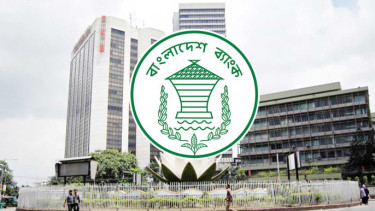More News
Trending
- REBUILDING BANGLADESH’S HEALTH SYSTEM: PRIMARY HEALTH CARE AT THE CORE OF STATE REPAIR
- HSC Results Debacle and Flaws in Education System
- FROM APPS TO AI ROBOTS: BANGLADESH EMBRACES A HEALTH-TECH BOOM
- RADIANT PHARMACEUTICALS: CHARTING GROWTH, QUALITY, AND GLOBAL AMBITIONS
- Affordable Healthcare Brings Relief to Bashundhara Residents
- From Crisis to Coverage: Bangladesh’s Health Insurance Push
- Return of ‘No’: Quiet Revolt of Democracy
- Sanming University hosts English-Chinese language corner to foster cross-cultural exchange
- Government and IMF face off over four key issues
- EU steps up efforts to cut reliance on Chinese rare earths
- Japanese film about man-eating bear delayed after deadly attacks
- Govt’s promise fades into silence as July martyrs await recognition
- Awareness campaign highlights road safety in Zakiganj
- NCP holds meeting with Consensus Commission over July Charter
- 'Horrific' torture signs found on bodies returned by Israel, but probe difficult
- Physically challenged imam gets much-needed support
- Experts from 4 countries to probe Dhaka airport fire: Home Adviser
- Tk2,000cr post-July Uprising insurance claims stalled
- Put aside differences, join polls: Fakhrul to all parties
- Netflix turns American royalty into high drama
- Businessmen waiting for elected government
- Bangladesh plans to lease ports to foreign firms spark anger
- US, China seek to avoid trade war escalation, salvage Trump-Xi meeting in Malaysia talks
- Al-Aqsa Mosque faces imminent collapse from Israeli excavations
- BB ready to support private sector with reforms, easier loans: Director
- Per capita income of Dhaka residents reaches $5,163: Survey
- Ontario to stop running anti-tariff advert that angered Trump
- 1.6m children at risk of acute malnutrition in 2025: IPC Report
- Gaza children dying as they wait for Israel to enable evacuations
- Salahuddin calls for unity to block Awami League’s return to power



